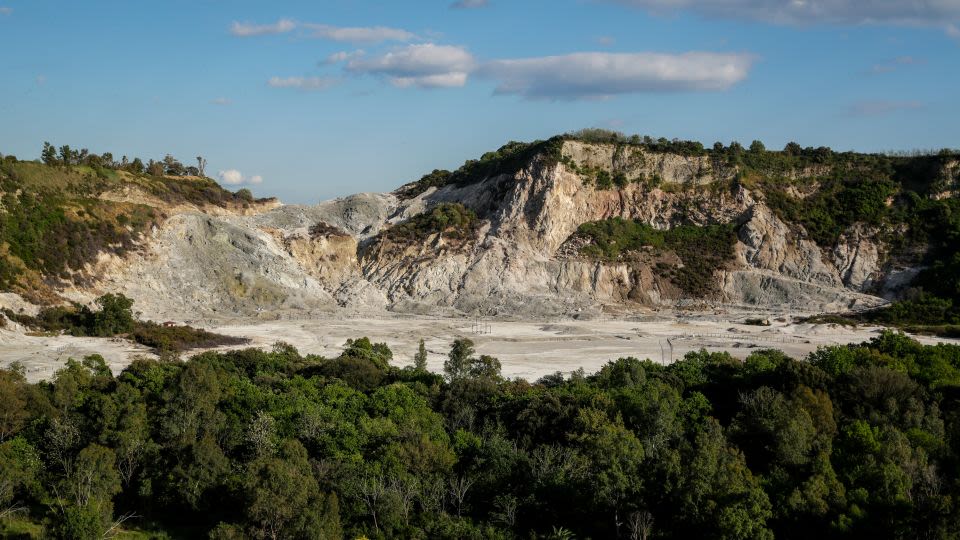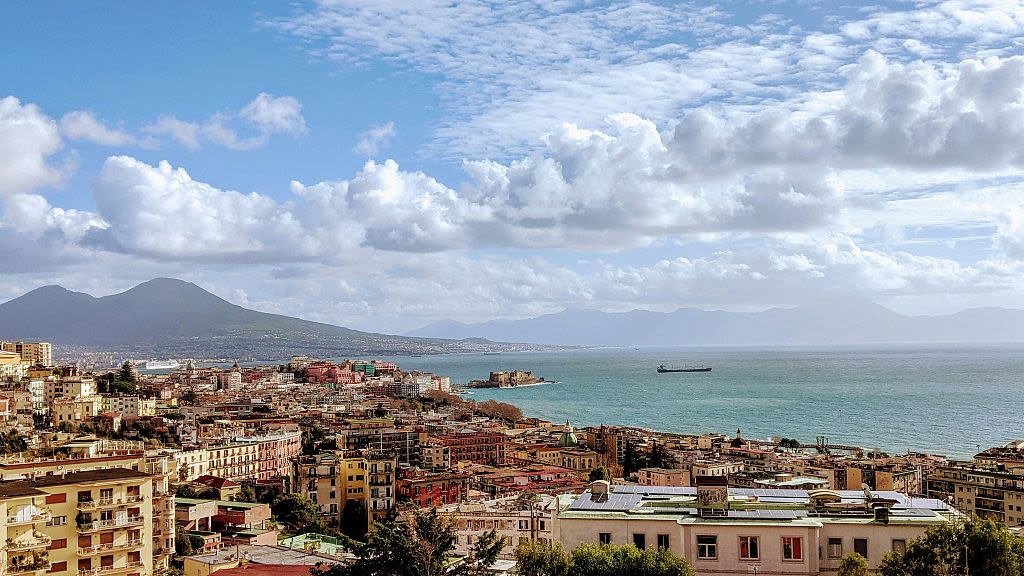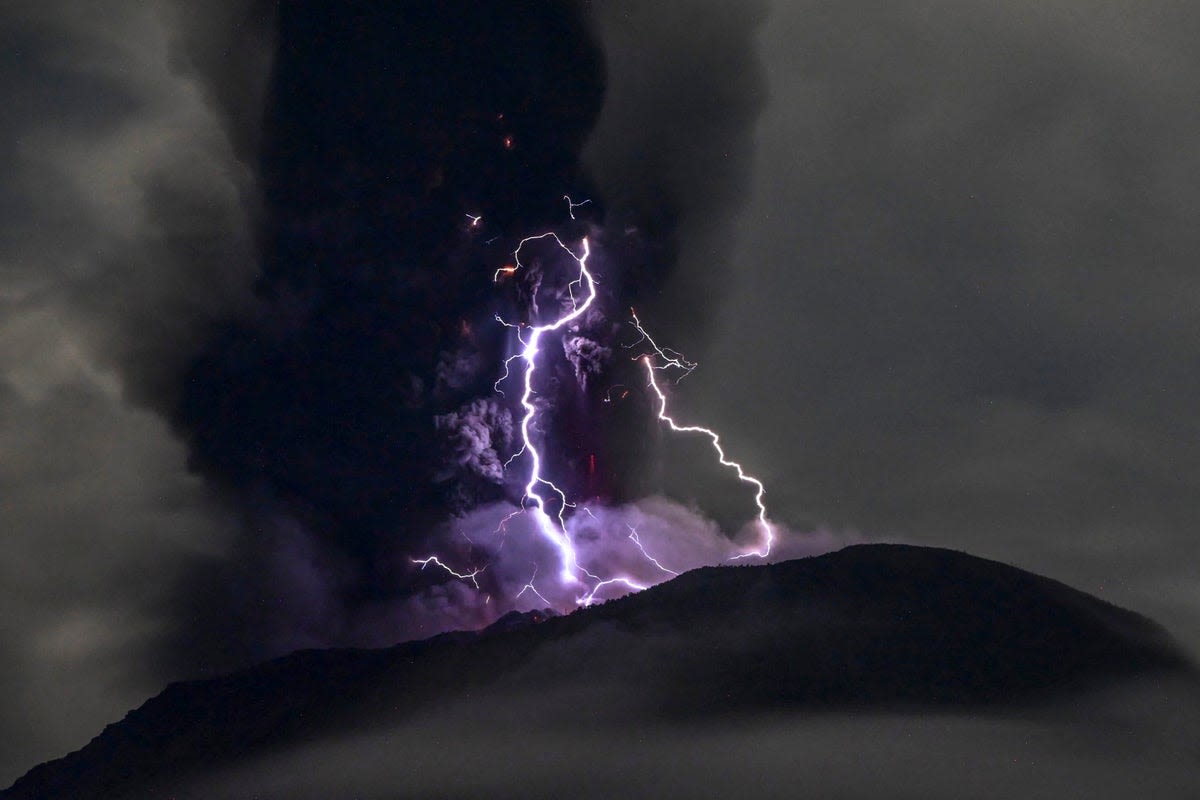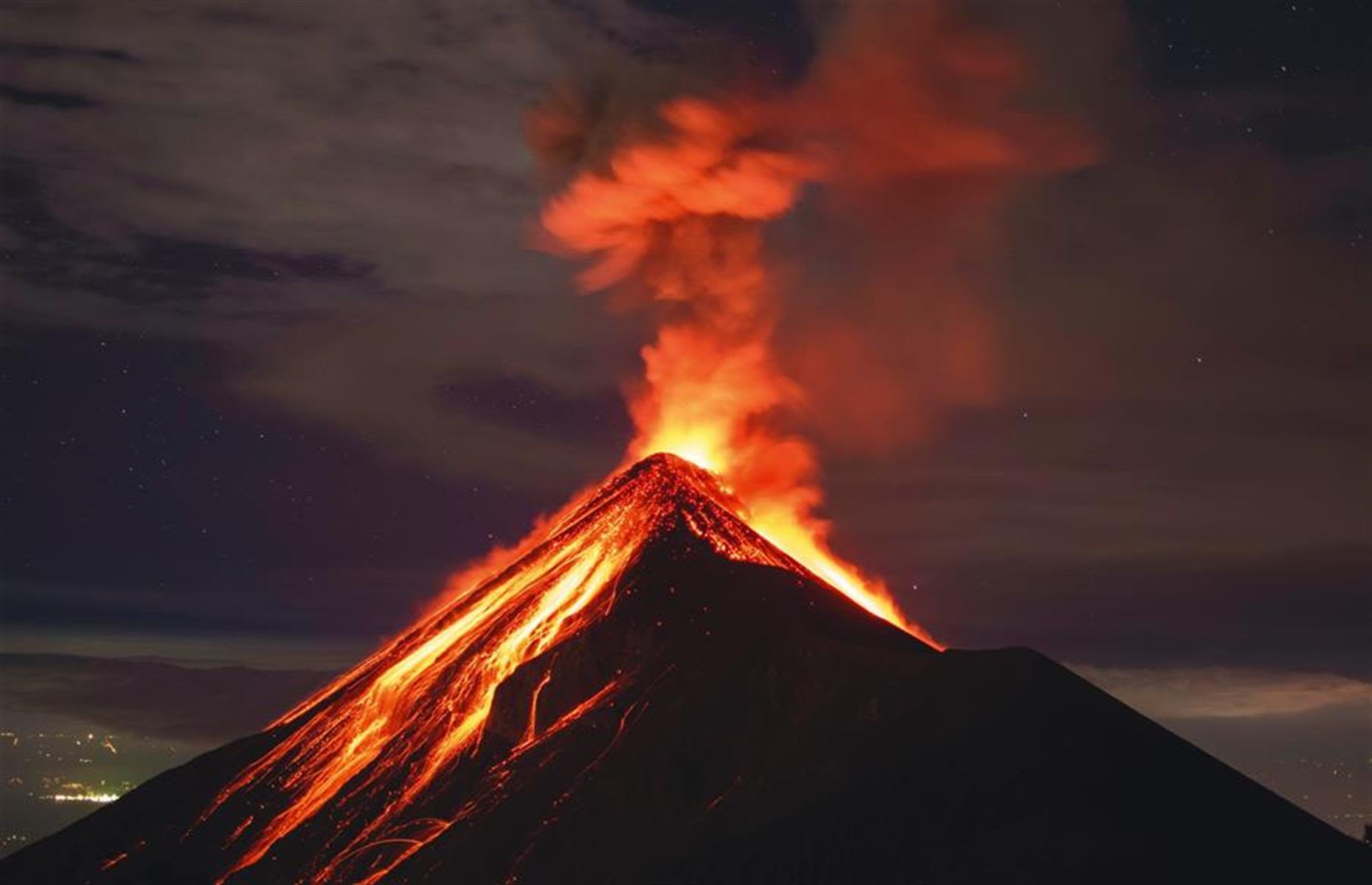Search results
News about Campi Flegrei, Naples, active volcanoes
News about Mount Ibu, eruption, Indonesia
Also in the news
Volcanoes are openings, or vents where lava, tephra (small rocks), and steam erupt onto the Earth's surface. Volcanic eruptions can last days, months, or even years. What is a volcano? Redoubt volcano with minor ash eruption. Photograph taken during observation and gas data collection flight by AVO staff March 30, 2009.
Jan 15, 2018 · Volcanoes are Earth's geologic architects. They've created more than 80 percent of our planet's surface, laying the foundation that has allowed life to thrive. Their explosive force...
May 6, 2024 · A volcano is an opening on the surface of a planet or moon that allows material warmer than its surroundings to escape from its interior. When this material escapes, it causes an eruption.
A volcano is a vent in Earth's surface where magma, gas, and ash escape. The name is also used for cones of erupted material at the vent. Volcanoes are found on many planets and moons in our solar system. Plate Tectonics and Mount Vesuvius.
A volcano is an opening in the Earth's surface through which lava, volcanic ash, and gases escape. Ancient people believed that volcanoes were under the control of the gods. In fact, the word volcano comes from Vulcan, the Roman god of fire.
Volcanic activity is the most powerful force in nature. Some volcanic eruptions are much more powerful than the largest nuclear explosion. Volcanoes have killed thousands of people and caused some of the most frightening events in human history. This site includes information about volcanoes, their activity, and how they form and erupt.
volcano, Vent in the crust of the Earth from which molten rock, hot rock fragments, ash, gas, and steam issue. Most volcanoes are found on the boundaries of the enormous plates that make up the Earth’s surface.




